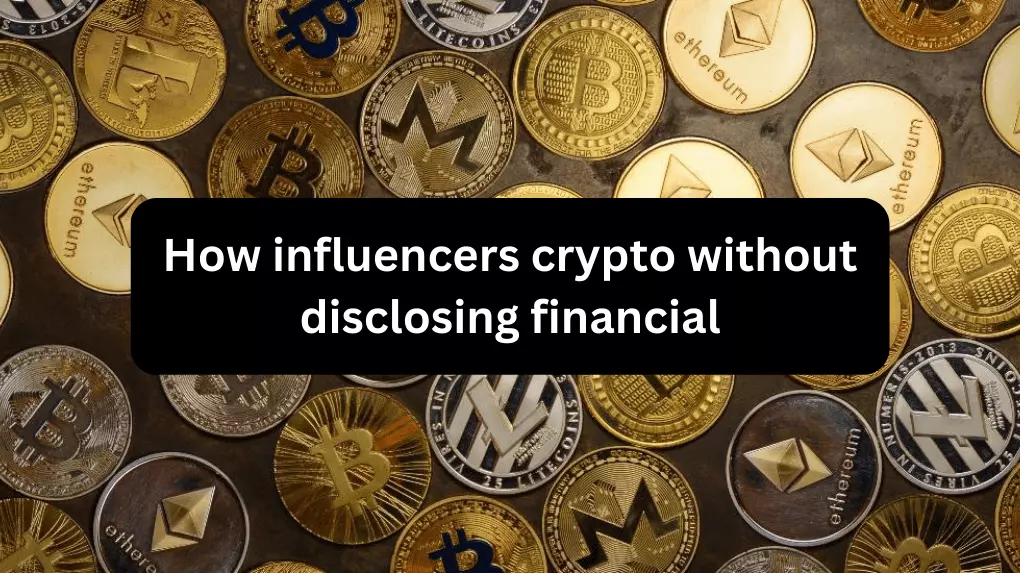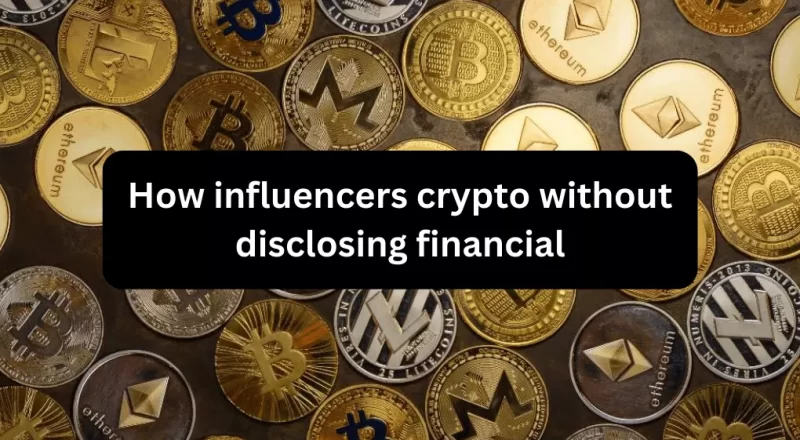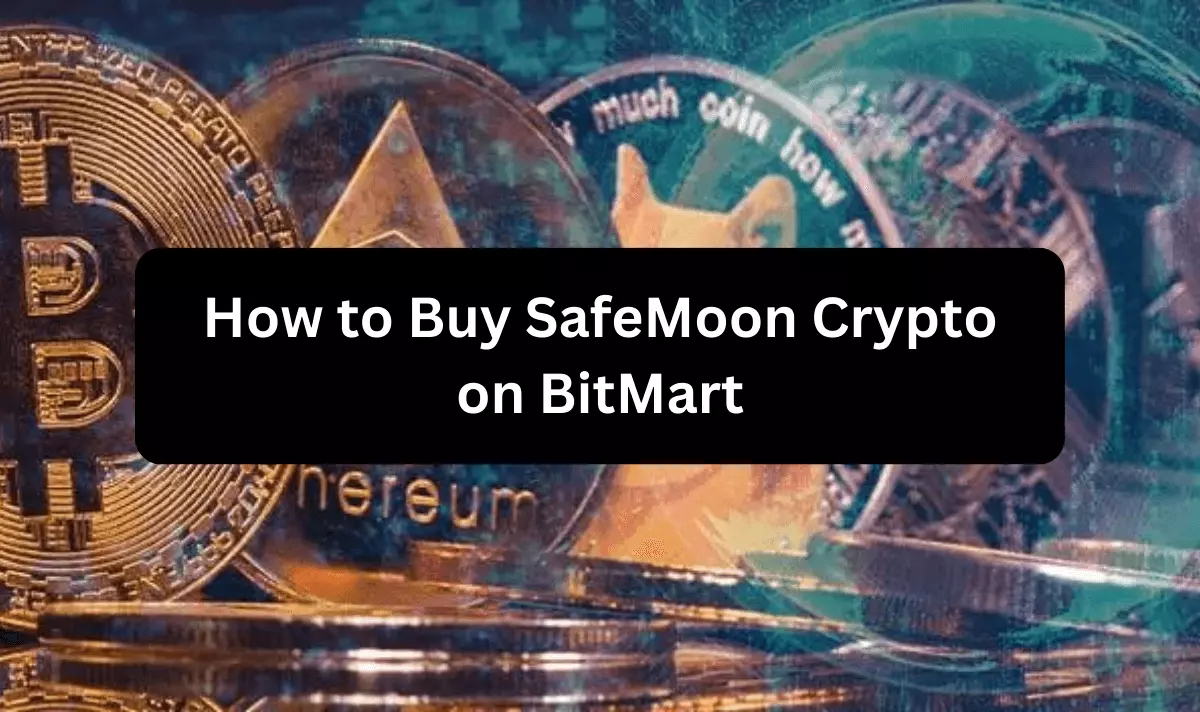
Introduction
In the world of influencer marketing, there is a cryptic dance that some influencers engage in when promoting financial products, including cryptocurrencies, without explicitly disclosing their financial interests. As an influencer, I have witnessed various tactics employed to endorse these products while subtly maintaining an air of mystery. Through strategic language, hints, and vague references, influencers can leave their audience intrigued and curious without fully disclosing their financial involvement. In this article, I will delve into the intriguing world of how influencers navigate the realm of crypto promotion without explicitly disclosing their financial interests.
Content
The Importance of Disclosure

In the world of influencer marketing, where social media stars hold significant sway over consumer choices, it becomes crucial for them to be transparent about their financial interests. The importance of disclosure cannot be overstated, as it ensures that followers are aware of any potential biases and can make informed decisions. In this article, I will delve into why disclosure matters, examining the legal and ethical obligations of influencers, the consequences of non-disclosure, and real-life examples that highlight the significance of transparency.
As an influencer, I have a responsibility to adhere to legal and ethical guidelines. The Federal Trade Commission (FTC) requires influencers to disclose any material connections or financial interests when endorsing products or services. By disclosing these relationships, influencers provide transparency and avoid misleading their audience.
1. Ensuring Transparency for Informed Decisions
In my experience, transparency builds trust between influencers and their followers. When I disclose my financial interests in a crypto promotion, it allows my audience to understand the potential biases behind my recommendation. By being upfront about these interests, I empower my followers to make informed decisions based on all the relevant information.
2. Consequences of Non-Disclosure
Failure to disclose financial interests can have severe consequences. For instance, an influencer who promotes a cryptocurrency without revealing their financial stake in it may be viewed as dishonest or deceptive. This can lead to a loss of credibility, a decline in followers, and potential legal repercussions. I always prioritise disclosure to maintain the trust I’ve built with my audience.
Disclosure is not only a legal requirement but also an ethical obligation. Being transparent about our financial interests empowers our audience to make informed decisions. Non-disclosure can harm our reputation and the trust we’ve built with followers. I always prioritise disclosure to ensure transparency and foster a relationship with my audience.
Cryptic Strategies Used by Influencers

As an influencer, I’ve encountered various cryptic strategies used by fellow influencers to promote financial products without explicitly disclosing their financial interests. These tactics are often designed to be subtle and elusive, making it challenging for followers to recognise the underlying motives. I will shed light on some of these cryptic strategies and explain how they influence consumer behaviour.
1. The Art of Subtle Promotion
In my experience, influencers have mastered the art of promoting financial products while maintaining an air of secrecy. Instead of overtly endorsing a specific cryptocurrency, they might drop hints or mention their involvement in a way that piques curiosity. For example, I’ve seen influencers allude to their “crypto journey” or talk about their “investments in the digital realm” without explicitly disclosing the coins they hold.
2. Misleading Content and Language
To avoid direct disclosure, influencers often use misleading content and language. They might provide general investment advice without mentioning specific cryptocurrencies, creating an aura of mystery. By using ambiguous terms like “digital assets” or “alternative currencies,” they leave room for interpretation while still influencing their audience’s perceptions.
3. The Psychological Impact of Cryptic Messaging
Cryptic messaging plays on human psychology, leveraging the power of curiosity and exclusivity. When influencers cryptically discuss their financial interests, it sparks intrigue among their followers. The lack of explicit information leaves room for speculation and fuels a desire to discover hidden secrets. This psychological impact can lead to increased engagement and a heightened sense of FOMO (fear of missing out) among followers.
Influencers have developed cryptic strategies to promote financial products without explicitly disclosing their financial interests. Through subtle hints, misleading content, and cryptic language, they manipulate consumer behaviour and create a sense of curiosity and exclusivity. As an influencer, I understand the importance of transparency and strive to maintain open communication with my audience, ensuring they have the necessary information to make informed decisions.
Regulatory Measures and Guidelines

In influencer marketing, regulatory measures and guidelines are crucial in ensuring transparency and accountability. As an influencer, I have encountered various regulations and guidelines that govern my activities when promoting financial products, including cryptocurrencies. I will explain these measures and guidelines, highlighting their importance in maintaining a fair and ethical influencer landscape.
1. Understanding Regulatory Frameworks
Regulatory frameworks are in place to protect consumers and promote fair practices in influencer marketing. Organisations such as the Federal Trade Commission (FTC) in the United States and similar bodies worldwide have established guidelines that influencers must follow. These guidelines emphasise the importance of disclosing financial interests and ensuring transparency when promoting financial products, including cryptocurrencies.
2. Compliance and Enforcement
Compliance with regulatory guidelines is essential to maintain trust with our audience. As an influencer, I am obligated to adhere to these guidelines. Non-compliance can result in consequences such as warnings, fines, or legal action. By following these regulations, I demonstrate my commitment to ethical practices and protect my audience and my own reputation.
3. Emerging Best Practices
In the ever-evolving influencer landscape, best practices continue to emerge to ensure responsible promotion. These practices go beyond legal requirements and emphasise ethical conduct. For example, besides disclosing financial interests, influencers are encouraged to provide unbiased information, conduct thorough research, and disclose any potential risks associated with cryptocurrencies. These best practices help foster a trustworthy environment and allow influencers to provide valuable insights to their audience.
Regulatory measures and guidelines are essential in influencer marketing, particularly when promoting financial products like cryptocurrencies. Understanding and complying with these regulations demonstrate our commitment to transparency and ethical conduct. By following emerging best practices, influencers can establish themselves as trusted sources of information and provide valuable insights to their audience.
Conclusion
In the complex world of influencer marketing, the strategies used by influencers to promote cryptocurrencies without disclosing their financial interests are intriguing yet concerning. Throughout this article, I have explored the cryptic dance that takes place, where influencers master the art of subtle endorsement and engage in clever wordplay. While these tactics may captivate their audience, they also raise questions about transparency and consumer trust. As an influencer, I understand the importance of maintaining openness and integrity in my own promotions. By prioritising disclosure and providing clear information, I aim to foster a relationship of trust with my audience and empower them to make informed decisions. Ultimately, transparency is key in navigating the realm of crypto promotion and ensuring ethical influencer practices.
u003cstrongu003eHow do influencers promote cryptocurrencies without disclosing their financial interests?u003c/strongu003e
Influencers employ various strategies to promote cryptocurrencies without explicitly disclosing their financial interests. They may use subtle language, hints, or references to create curiosity and engagement without directly stating their involvement. However, it is important to note that regulations and guidelines require influencers to disclose such interests to maintain transparency.
u003cstrongu003eIs it legal for influencers to promote cryptocurrencies without disclosing their financial interests?u003c/strongu003e
Actually, it is legal for influencers to promote cryptocurrencies by disclosing their financial interests in many jurisdictions. Regulatory bodies, such as the Federal Trade Commission (FTC), have guidelines that mandate influencers to disclose any material connections or financial interests when endorsing products or services, including cryptocurrencies.
u003cstrongu003eWhat are the consequences for influencers who promote cryptocurrencies without disclosing their financial interests?u003c/strongu003e
The consequences for influencers who fail to disclose their financial interests when promoting cryptocurrencies can be significant. They may face legal repercussions, including fines and legal action. Moreover, their reputation and credibility may need to improve, resulting in a loss of trust from their audience and a potential decline in followers and business opportunities.
u003cstrongu003eAre there any best practices for influencers to ensure transparency when promoting cryptocurrencies?u003c/strongu003e
Yes, there are best practices for influencers to ensure transparency when promoting cryptocurrencies. They should prioritise disclosure by clearly stating their financial interests and any potential biases associated with their endorsements. It is also important to provide unbiased information, conduct thorough research, and disclose any potential risks associated with cryptocurrencies to help followers make informed decisions.
u003cstrongu003eHow can followers identify if influencers promote cryptocurrencies without disclosing their financial interests?u003c/strongu003e
Followers can look for red flags that indicate influencers may be promoting cryptocurrencies without disclosing their financial interests. These include cryptic language, vague references to investments, or an excessive focus on a particular cryptocurrency without providing transparent information. Followers must be critical and ask direct questions about influencers’ financial involvement before making investment decisions.

Michael is a cryptocurrency blogger who writes about the latest developments in blockchain technology. He has been blogging for over 4 years and his posts have been read by people from all around the world. His blog covers a wide range of topics, such as trading advice, new ICOs to invest in, and how blockchains can be used outside of cryptocurrencies. Michael also enjoys writing about more technical aspects of cryptocurrencies and blockchain technology.














